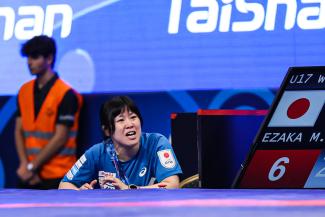Wrestling completes tree-planting initiative in Casablanca
Monday, June 30, 2025 - 11:52 By United World Wrestling Press

CASABLANCA, Morocco (June 30) --- A tree-planting initiative was organized in Casablanca in partnership with local authorities. This initiative aimed to raise participants’ awareness of the environmental emergency and the role of sport in combating climate change.
“Planting a tree is sowing a promise. Today, we plant for tomorrow, just as we train today for tomorrow’s medals,” said Assad Ouassama a young Moroccan wrestler participating in the camp, with emotion.
An educational session on environmental protection in sport also took place on April 25, continuing eco-responsible momentum.
A Fraternal Atmosphere and a Family Spirit
Beyond the technical and educational aspects, this camp provided many athletes with the opportunity to build lasting bonds with their fellow African counterparts.
“I leave not only stronger, but with lifelong friends. Camps like this strengthen our continental identity and spirit of unity,” emphasized Rahman Sesay ABDUL, a Sierra Leonean coach attending the training camp.
The warm atmosphere and high-quality exchanges confirmed the value of this holistic approach to sports training.
Toward a New Model of Sports Organization in Africa
By combining sporting excellence with educational values and social engagement, United World Wrestling is promoting an innovative model for competitions across the African continent.
“Casablanca 2025 is not just a competition; it’s a turning point. By integrating these educational dimensions, we are building a sustainable ecosystem for wrestling in Africa,” concluded Fouad Meskout, President of UWW Africa.
A Lasting Legacy for Casablanca and Africa
As the African Championships opened in an atmosphere of commitment and unity, the training camp organized by UWW stood out as a model to follow. It demonstrated that athletic performance can -- and should -- be paired with social and environmental consciousness.


Share your thoughts.
Comments